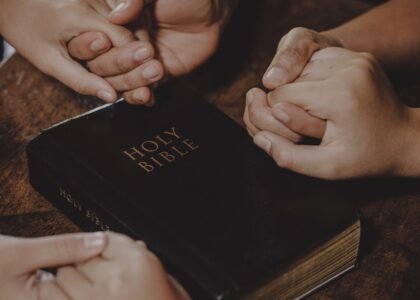In this blog post, we will explore the importance of fostering fellowship and building stronger community bonds within the church. We will delve into the significance of creating a welcoming and inclusive environment that encourages meaningful connections and supports the spiritual growth of each individual. Through various examples, practical tips, and biblical references, we will provide insights on how church members can actively contribute to building a vibrant and supportive community. Additionally, we will highlight the benefits of fellowship, both for individuals and the collective body of believers, and discuss how it can enhance the overall church experience. Whether you’re a long-time member or new to the church, this blog post aims to inspire and encourage everyone to actively participate in fostering fellowship and building stronger community bonds within the church.
Emphasizing the Power of Authentic Relationships: In a world where superficial connections have become the norm, the church can be a place where genuine relationships are fostered. We’ll explore the importance of authenticity and vulnerability in building deep connections with fellow believers. Sharing our joys, struggles, and journey of faith with others creates an environment where individuals feel valued, supported, and loved.
Nurturing a Culture of Hospitality: Hospitality plays a significant role in creating an inviting atmosphere within the church. We’ll discuss practical ways to cultivate a culture of hospitality, such as greeting newcomers warmly, hosting fellowship events, and initiating conversations with those who may feel isolated. By extending a welcoming hand and genuine care, we can make everyone feel like an integral part of the church family.
Encouraging Small Group Engagement: Small groups provide a wonderful opportunity for deeper fellowship and spiritual growth. We’ll explore the benefits of joining a small group and highlight the various types of groups available within the church, such as Bible study groups, prayer groups, and hobby-based groups. Additionally, we’ll discuss how participating in these groups can foster accountability, discipleship, and meaningful connections.
Serving Together: Serving alongside fellow believers not only strengthens our bond but also helps us make a positive impact in our community. We’ll discuss the significance of engaging in church ministries and outreach programs, encouraging readers to discover their unique gifts and talents. By collectively using our abilities for the greater good, we can deepen our fellowship while fulfilling the church’s mission.
Cultivating a Culture of Forgiveness and Reconciliation: Conflict is inevitable within any community, including the church. We’ll explore the biblical teachings on forgiveness and reconciliation, emphasizing the importance of resolving conflicts in a spirit of love and understanding. By practicing forgiveness and seeking reconciliation, we can foster an atmosphere of grace and unity, allowing fellowship to flourish.
Utilizing Technology for Community Building: In today’s digital age, technology can be a powerful tool for connecting church members beyond physical gatherings. We’ll explore various ways to utilize social media, online platforms, and digital communication tools to foster fellowship and build stronger community bonds. Whether it’s organizing virtual events, sharing prayer requests, or facilitating online discussions, technology can complement traditional methods of community building.
Conclusion: Building stronger community bonds and fostering fellowship within the church is a collective responsibility. By embracing authenticity, hospitality, small groups, service, forgiveness, and utilizing technology, we can create a vibrant and supportive community where individuals feel valued, loved, and connected. Let us commit ourselves to actively participate in the process of building stronger community bonds, as we grow together in faith and fulfill the mission of the church.



